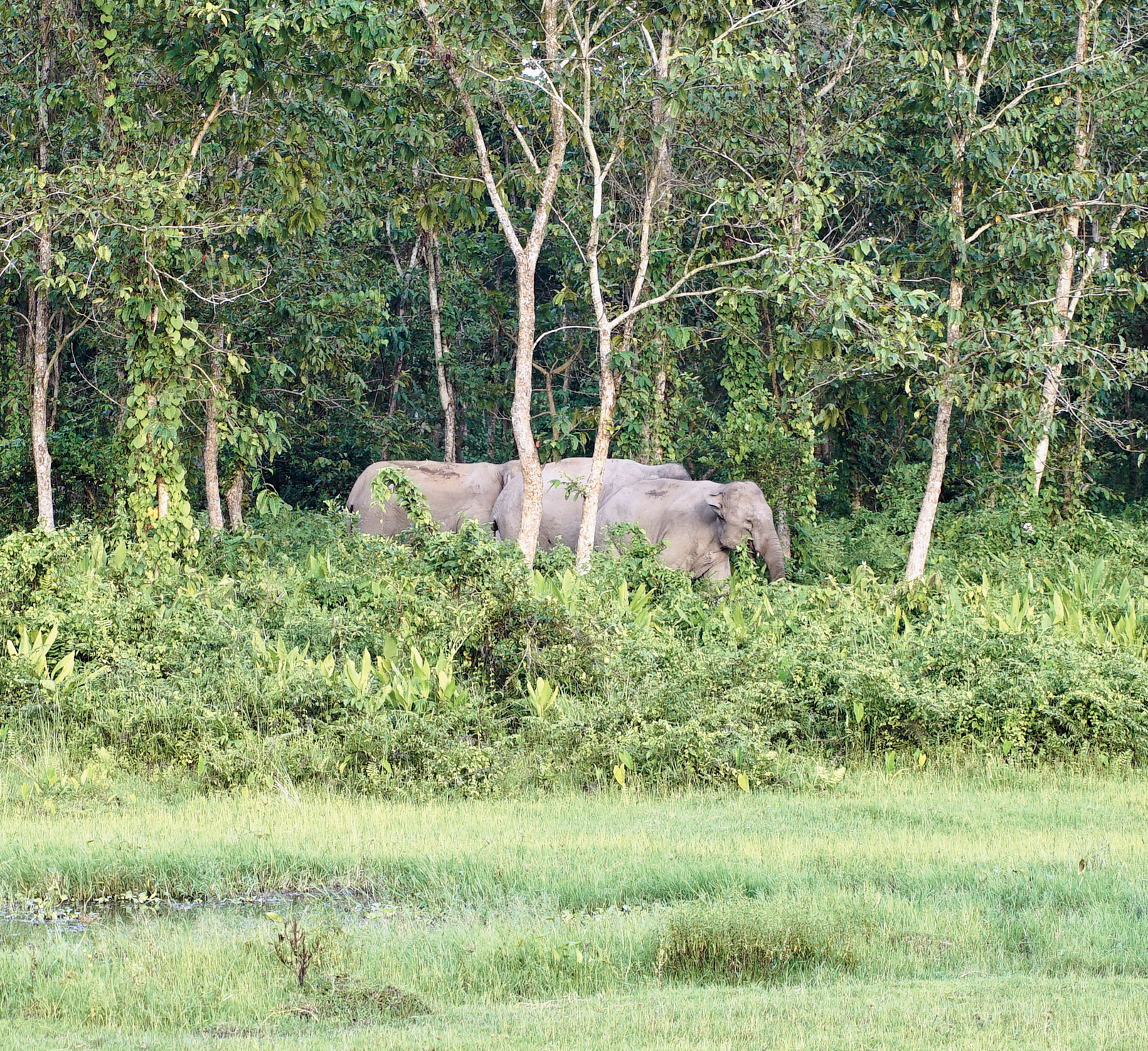Radio collars have helped forest officials in north Bengal prevent an elephant herd from raiding a tea garden in Jalpaiguri at least twice in the past week.
Two elephants from different herds had been tagged on April 29 and May 2. A team of researchers and foresters in north Bengal has been tracking the movement of two elephants and their herds since they were tagged.
The objective of the project is to understand the movement patterns of elephant herds and mitigate their raids on human settlements, thereby reducing man-animal conflicts.
Meenakshi, the second elephant to be tagged near Gorumara National Park on May 2, is a member of a herd that comprises more than 25 elephants.
“The herd, roaming the outskirts of Gorumara, was headed to a tea garden at least twice in the past seven days,” a researcher from the Indian Institute of Science in Bangalore who is stationed in Malbazar to monitor the movement of the elephants said. “But we were able to alert the range officer in advance.”
The Asian Nature Conservation Foundation, which functions out of the IISc campus in Bangalore, has undertaken the project in partnership with the Bengal forest department.
Forest squads reached the spot in time and drove the elephants away.
“The project has started yielding dividends. Had the herd not been tracked, the elephants would have raided the tea garden and damaged crop and homes,” Ujjal Ghosh, the state chief conservator of forests, wildlife north, said.
An official of Bamandanga Tea Estate in the Nagrakata block of Jalpaiguri, where the herd was headed, said elephant raids were common almost every year. “The damage is extensive during a raid... boundary walls, crops, service quarters. We alert the forest department but they often turn up late... by the time maximum damage is done.”
While Meenakshi’s herd was roaming the Gorumara National Park and its outskirts, the herd of the elephant tagged first was far from human settlements.
Shanta was tagged on April 29 at the Ghoramara forest near Siliguri’s Bengal Safari Park, adjoining the Mahananda Wildlife Sanctuary. The herd is inside the sanctuary right now. They are off the grid for now because there is hardly any network deep inside the forest. But the moment they venture near human settlements, they will be back on our radar,” the researcher said.
“The north Bengal forests are connected through tea gardens, railroads and highways. By monitoring the movements of the herds, we hope to find patterns and reduce elephant deaths on tracks and roads,” a forest official at the headquarters in Calcutta said.











